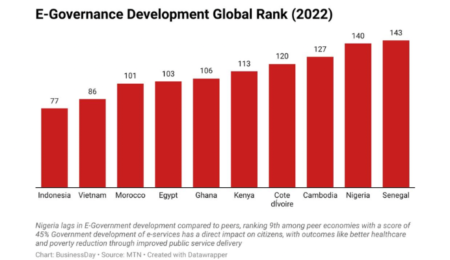Shelter4Digital(S4G), an initiative of the Africa Digital Economy Forum (ADEF), a digital transformation advocacy platform, is set to drive and deepen digital inclusion in Africa among people with special needs.
The S4G campaign began with a visit to public schools with special needs units, where teachers were trained in basic programming languages. Thereafter, the students were trained through assistance from their teachers who communicated with the children via sign language.
Akin Naphtal, ADEF founder & CEO said the S4G Project was created to support and create awareness of the importance of technology to aid social development and drive digital impact.
“Digital Inclusion can only be achieved when activities necessary to ensure that all individuals and communities, including the most disadvantaged, have access to and use of Information and Communication Technologies (ICTs) are in place. Digital Inclusion must evolve as technology advances. Digital Inclusion requires intentional strategies and investments to reduce and eliminate historical, institutional, and structural barriers to access and use technology, this is what has birthed the Shelter 4 Digital Campaign (S4G)”.
Read also: Tezza Academy’s free IT training to drive talent export
“We Made our first stop at a Community School with a special needs unit in the Local Government area of Agege, where we started by training the teachers, before moving to training the children. Our Instructor Started with scratch programming with the children, teaching them how to create digital stories and make animations and designs. Tutoring the children has been an amazing experience, as they do not let their disabilities define them. The positive response we get from these children keeps us going, as some of them can now do graphics designing, digital stories, and even create animations.” Naphtal said
Starting from Nigeria’s most populous state, the Forum has signed a partnership with the Lagos State Government (LASG) to bring the S4G campaign to life across schools in the State. With the mantra “No one Should Be Left Behind”, the initiative is aimed at creating awareness, deepening digitalization, and driving digital inclusion among African youths and SMEs across the continent.
According to the forum, to further enhance digital learning among the students, it plans on getting laptops for easier learning and also for them to practice on their own in their homes” he added.
The United Nations has identified the internet as a basic human right that should be extended to all citizens of the world. As the digital revolution intensifies and grows, governments, non-profits, and businesses will have to extend access to ICT very broadly. It is the only way forward to creating a more enabling and competitive global society.






